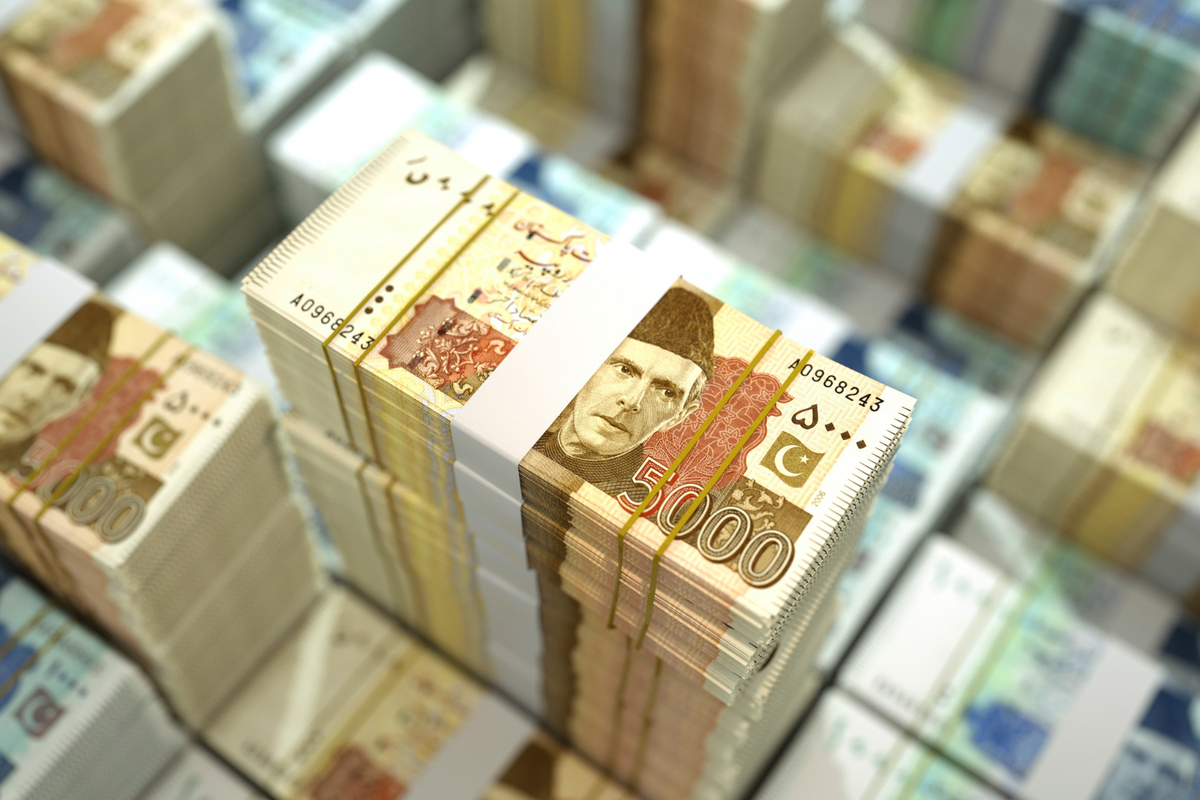Each 100bps cut in Pakistan’s interest rate to reduce domestic debt by Rs300 billion
Pakistan’s current account is in the strongest shape since 2003, says BofA report.

Haris Zamir
Business Editor
Experience of almost 33 years where started the journey of financial journalism from Business Recorder in 1992. From 2006 onwards attached with Television Media worked at Sun Tv, Dawn Tv, Geo Tv and Dunya Tv. During the period also worked as a stringer for Bloomberg for seven years and Dow Jones for five years. Also wrote articles for several highly acclaimed periodicals like the Newsline, Pakistan Gulf Economist and Money Matters (The News publications)

A stack of Pakistani rupee notes
Shutterstock
Each cut of 100 basis points (bps) in the interest rate by Pakistan’s central bank would reduce its domestic debt by Rs300 billion, according to a Bank of America (BofA) Securities report released on Wednesday.
The Pakistan government’s domestic debt currently stands at Rs43 trillion, an increase of nearly Rs5 trillion from June 2023, when it was Rs38.8 trillion.
The current interest rate — which is set by the State Bank of Pakistan (SBP) — is 20.5%, down from a record 22%.
Debt servicing costs constitute the bulk of Pakistan’s financing needs and monetary easing would help bring them down.
The central bank, which announced an interest rate cut in June 2024 for the first time in four years, is likely to reduce it further in the coming months.
As the interest rate comes down, lingering risks from fiscal pressures will fade away, the report said.
Following the rapid devaluation of the Pakistani rupee last year, the country’s current account is in the strongest shape since 2003, it said.
BofA said there were no major fundamental reasons for the rupee to weaken further, at least in near future, and macro-fundamentals do not seem to indicate any major PKR mispricing.
The PKR had fallen to a record low of Rs307.1 per dollar on September 5, 2023. It has recovered since then and closed at Rs278.5 per dollar in the interbank market on July 10.
BofA said there were limited risks of currency weakness since Pakistan is expected to reach an agreement with the International Monetary Fund (IMF) for a new loan programme next month.
Meanwhile, Finance Minister Muhammad Aurangzeb explicitly stated on April 17 that the authorities do not expect any major currency devaluation beyond the usual pace of annual weakness and net of any major new shocks.










Comments
See what people are discussing